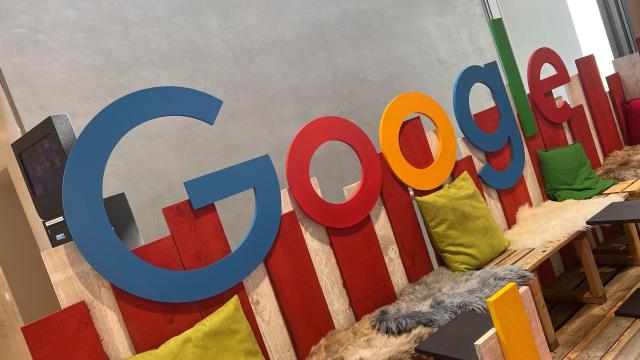Google is pinky-swearing it will be more transparent in the future about how and why you keep seeing the same ads that seem to know you much better than you know yourself, though only if you live in the European Union.
In a blog post, Google’s VP of Trust and Safety Laurie Richardson said the company will be expanding its Ads Transparency Center “to meet specific DSA provisions.” Though the company did not say what kinds of changes would take place, the idea is it would need to give EU users a better idea of why they see targeted ads. Google also said it will creak open up the padlocked doors of its ad business to give outside researchers more access to the Search, YouTube, Maps, Play, and Shopping algorithms related to the “content risks” for European users.
Google announced these planned changes just a day before the European Union’s Digital Services Act would start enforcement for large platforms of more than 45 million regional users. The DSA covers all online platforms along with web hosts and internet service providers. But as far as big platforms and social media sites are concerned, the DSA requires that companies let users opt out of targeted ad recommendations that are based on sensitive categories including race, religion, or even political viewpoint. Companies that don’t comply could face fines worth up to 6% of their annual gross income.
Richardson said the company would be expanding both Google and YouTube’s yearly transparency reports to add more info about how the tech giant handles content moderation across its brands. Additionally, Google said it would update its reporting and appeals processes so users can receive much more “specified types of information” about bans or issues.
It’s a lot of hand-waving, but we’ll have to wait and see what kind of measures Google thinks it can get away with without compromising its bread and butter: its ad business. The Alphabet-owned company is planning to fundamentally change the way ad tracking tools work on the internet by replacing online cookies with a so-called “privacy sandbox.”
The Google VP claimed Google is already compliant in part with a few of the DSA’s mandates, and says it blocks targeted ads to people under the age of 18 and tries to review potentially harmful content flagged to them by “experts.”
Google has claimed it’s getting better at taking down so-called “bad ads” that crop up in Search, and that it’s removing more malicious content than ever before. However, Google’s apparatus is so large and diverse that it often misses issues, a concern for both advertisers and its billions of users. Take a recent report that showed YouTube was running ads against climate change denial videos, for example.
Other companies have also said they would make changes to comply with the EU’s mandates. Meta said on Tuesday it would start archiving targeted ads and explain how its content gets sorted and targeted via its algorithms, though only in the EU. This should allow Europeans to sort their feeds in chronological order, a first for the platforms that made their mark using targeted, algorithmically filtered feeds. TikTok has faced increasingly dire consequences for its reported data practices and links to the Chinese government, including the prospect of a full EU ban if it doesn’t comply with the DSA. Earlier this month, TikTok said it would make its For You tab’s algorithmically generated content optional in the EU.
Other major online platforms have tried another tactic. In a lawsuit, the very, very large online platform Amazon has argued to the EU that it’s not, in fact, a very large online platform. The online retail giant claimed that most of its revenue comes from retail, rather than its advertising arm, and therefore wasn’t a “platform” akin to Facebook or Instagram. That’s, of course, if you ignore how Amazon also owns companies like Twitch, which makes most of its money through advertising on videos.
